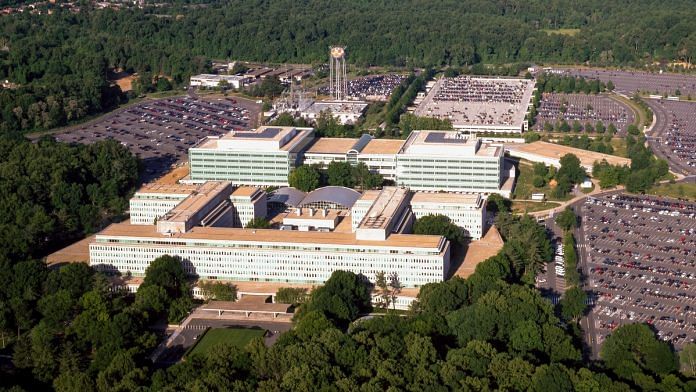New Delhi: A member of US Central Intelligence Agency (CIA) Director William J. Burns’ team experienced symptoms in line with the so-called ‘Havana syndrome’ during the team’s visit to India earlier this month, CNN reported late Monday.
The mysterious neurological illness, which first struck US diplomats and spies in 2016 and is speculated to be caused by microwave strikes, may result in dizziness, headaches, hearing and memory loss, among other symptoms.
The incident left the CIA director “fuming”, setting off “alarm bells” internally in the US government, the report said, citing multiple unnamed sources. The affected member in Burns’ team had to receive medical attention.
“The situation in India could have dramatic implications: the CIA director’s schedule is tightly held and there are deep concerns among US officials about how the perpetrator would have known about the visit and been able to plan for such an aggression,” CNN reported.
The New York Times also reported that the CIA is currently investigating the incident, with officials struggling to “determine the cause”.
“Theories abound, including that the injuries are byproducts of surveillance technology or that they are deliberate attempts to inflict harm, but all remain unproven so far,” the NYT report added.
While this is the first case of possible Havana syndrome to be recorded in India, it’s not the first time this year that US officials have been impacted by the syndrome.
CNN had also reported in August that US Vice President Kamala Harris’ flight to Vietnam was delayed by several hours due to a possible unconfirmed case of Havana syndrome. In July, US diplomats in Vienna, Austria had also reported possible cases of the syndrome, according to The New Yorker.
Also read: AUKUS is upsetting not just France, but China’s neighbours too
What is Havana syndrome?
The Havana syndrome gets its name from the Cuban capital, where the first cases among US diplomats and CIA officials emerged in December 2016, according to the Wall Street Journal.
In September 2017, WSJ had reported: “19 American officials at the U.S. Embassy in Havana have been affected by sonic harassment attacks with the union representing the diplomats saying symptoms include mild traumatic brain injury, hearing loss and other symptoms.”
According to the BBC, accounts from those affected by the syndrome mentioned “buzzing”, “grinding metal” and “piercing squeals”, while some experienced longer term symptoms like dizziness and fatigue.
The BBC cited University of Illinois professor James Lin, who believes that the syndrome originates from microwaves, as he had experienced hearing similar sounds while conducting his research in the 1970s, during the Cold War.
The Cold War has often been a source of speculation with respect to the Havana syndrome, with media and officials having previously drawn parallels between the new spate of cases affecting American officials, and research dating back decades.
The BBC also referred to a 1976 US intelligence report, which expressed fears over potential Soviet Union usage of microwaves as potential psychological weapons, but also said that no evidence of such microwave weapons were found to exist behind the Iron Curtain.
As such, the prevailing theories surrounding causes for the syndrome remain unsubstantiated.
In the absence of any known reliable medical treatment, alternatives like meditation, breathing exercises and intensive therapy are generally considered to treat patients, according to American medical website MedicineNet.
Also read: UK has issue with India’s CoWin certification, not vaccine. Travel restrictions to remain



